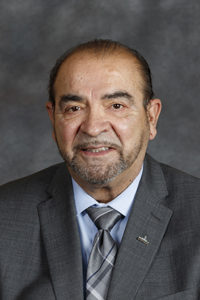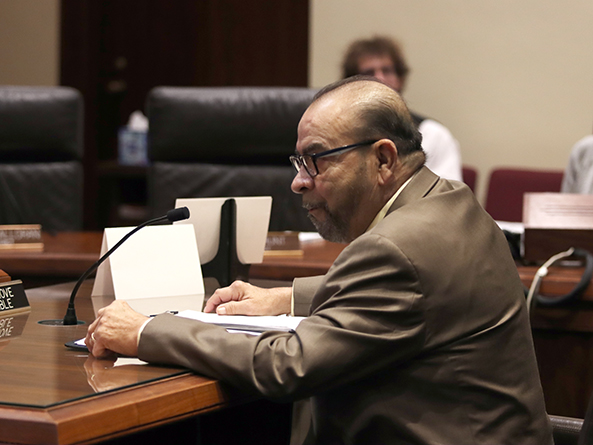Firearm industry protections considered
A bill intended to prohibit government entities from contracting with businesses that discriminate against the firearms industry was considered by the Government, Military and Veterans Affairs Committee Feb. 1.

LB925, sponsored by Sen. Raymond Aguilar of Grand Island, would establish the Firearm Industry Nondiscrimination Act. The bill would prohibit government entities from entering into any contract for goods or services with a company unless the contract includes a written certification that the company currently does not engage in discrimination against firearm entities or firearm trade associations.
The bill’s provisions would not apply to contracts with a value of less than $100,000 or to companies with fewer than 10 full-time employees. The state Department of Administrative Services would be required to review state contracts to ensure that the requirements are met.
Aguilar said policymakers should discourage discrimination and provide consequences when it occurs.
“Many successful businesses in the firearm and ammunition industries have faced discrimination by providers of financial services or insurance companies due to the very nature of their legal and regulatory-compliant businesses,” Aguilar said.
Nephi Cole of the Firearms Trade Association of America testified in support of LB925. The firearms industry has a history of being discriminated against by the financial services industry, he said, through canceled contracts, demands for new collateralization or higher rates for standard services.
“If companies make a choice to have a discriminatory policy against the Second Amendment, they should tell you about it,” Cole said. “If you can, you should do business with someone else.”
John Heaston, executive director of the Nebraska Sportsmen’s Foundation, also testified in favor of the bill. Firearms manufacturers are job creators and contribute a great deal to their communities, he said. LB925 would ensure that government entities know who they are contracting with, he said, so they can avoid supporting companies that discriminate against the firearms industry.
“Our First Amendment rights guarantee free speech, and that right is sacred,” Heaston said. “But targeting specific companies and groups based on the premise of guilt by association is an unfair use of those First Amendment rights.”
Steve Hornady, president of a Grand Island ammunition manufacturing company, testified in support of the bill. He said his company, which has been in business since 1949 and employs 1,200 people, has faced discrimination from insurance, software and credit card processing companies.
Hornady said the company’s property insurance carrier informed him last year that limits would be put on their coverage due to catastrophic weather-related challenges throughout the U.S. and because the company had begun to outgrow the provider’s capacity. When he requested bids from 24 other providers, he said, the company received no quotes.
“There’s no question that we see a ‘woke’ policy that moves through here that chooses to discriminate against a number of industries … oil and gas, some agricultural areas [and] certainly the firearms industry,” Hornady said.
But Robert Bell, executive director of the Nebraska Insurance Federation, said many businesses across all industries currently are having difficulty securing property insurance. Speaking in opposition to the proposal, Bell said large companies that are worth a great deal of money bring the added challenge of risk capacity.
Many insurance companies will not write a policy if they lack the capital to cover a loss, he said, regardless of the kind of business that a company does. As a result, Bell said, some successful companies have to pay very high premiums or self-insure.
Also testifying in opposition was Robert Hallstrom of the Nebraska Bankers Association. He said LB925 is an example of state government overreach and that such proposals often have unintended consequences, including entangling local government entities in costly litigation.
“Legislation designed to make a political statement should not be utilized to disrupt the normal operation of the free market system,” he said.
The committee took no immediate action on the proposal.


